I grew up believing that showing forgiveness was the ultimate sign of sainthood. Forgiveness for a long time to me was the crème de la crème of piety; the absolute epitome of everything that defines a “holy” person.
For most of my life, I’ve believed that forgiveness is about forgetting, it’s about wiping the slate clean and starting over again, it’s about miraculously blotting out any deed that has ever harmed us from memory.
Once upon a time, I understood forgiveness as being selfless; a quality that belonged to only the most enlightened people (a.k.a. Jesus), largely due to my heavily religious upbringing.
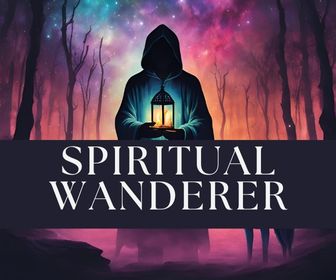
Spiritual Wanderer Course:
Being a lone wolf and a spiritual wanderer is a sacred calling in life – a unique and alchemical path of awakening. You don’t need to feel lost, alone, or stuck on your journey any more. It’s time to meet your soul’s deep needs for clarity, self-acceptance, and empowerment. Let us show you how …
But I was wrong.
Forgiveness doesn’t equal sainthood, and it sure as hell doesn’t make you a godly person.
Here’s why.
Overcoming the “Good Person Complex”
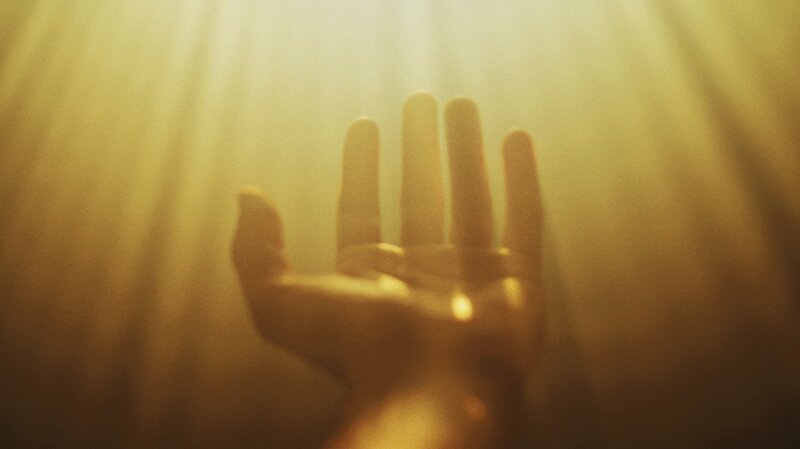
Everyone wants to be a “good person” and this vague life aspiration is almost always accompanied by the desire to be a forgiving person. Forgiving, to us, has become a prerequisite to becoming worthy and valuable human beings.
After all, only bad people refuse to forgive others, right? And we don’t want to be bad people. No.
Putting aside this 5-year-old logic was difficult for me to do growing up. As the first born child of my family, I was always trying to be the “good” and “responsible” person who obeyed what was “right” both in the eyes of my religious parents and God. Inevitably, a large part of being a “good person” was about forgiveness; was trying to forget the manipulative, hurtful and aggressive behaviors of others that spread around like poison.
Deep down I truly believed that forgiveness was like a magical wand that was waved to make everything better. Unconsciously you might believe the same thing.
How many times, for instance, have you thought, “If I forgive, I will feel better and everything painful will go away”? If you’re like most people, you’ve likely thought this more than once in your life.
And so, like me, you might have tried and tried to be forgiving. You might have thought “Yes! I’ve forgiven that person,” but found yourself secretly resenting them to their very core. You might have even thought that forgiving someone in your life would help them to heal, but later found them unchanged and just as miserable.
The truth is that we carry around such deep misunderstandings and twisted ideals of forgiveness that we never genuinely feel mended and we never authentically find closure.
We make forgiveness into a duty; a box on a checklist to be ticked. But the reality is that forgiveness is nothing like what we have been taught. And forgiveness really has nothing to do with being a good person.
5 Myths You’ve Been Taught About Forgiveness

It took me a long time to discover what forgiveness wasn’t and I thank my guide Sol and the shamanic journeying I’ve done for helping me to become more awakened to reality.
We all carry around serious core wounds that need the salve of forgiveness to heal. My personal core wound involves emotional and psychological abandonment due to the suffocating isolation I felt living in a fanatical, emotionally stunted family. A large part of my own journey has been about learning to forgive my parents and finding the genuine love and acceptance I was never given, inside of myself.
For you, your journey might be different. You might struggle with physical abuse issues, divorce problems, illnesses, tragedies, or any number of other traumas that may have stuck with you for a long time.
Whatever you are struggling with, know that forgiveness can truly set you free. But first you must challenge the many myths about forgiveness that have been ingrained into your personal belief system.
Myth 1: Forgiveness is a selfless act.
Reality: Forgiveness is a self-serving act.
It’s easy for us to get caught up in the romanticized notion that forgiveness means being a saint, but it doesn’t. True forgiveness is an act of self-liberation; it is about releasing yourself from the bitterness, shame and regret you’ve held onto for so long and finding true freedom. True freedom means that you no longer cling to your victimhood, your dark feelings or your angry thoughts, but you accept the reality of what happened, knowing that there is no point resisting something that occurred in the past.
Myth 2: Forgiveness is about forgetting.
Reality: Forgiveness is about using your pain to become wiser.
Forgetting the injustices and abuses committed against us is completely unrealistic. After all, forgiveness is not a magical fairy wand that causes amnesia! But forgiveness is about reflecting on what happened to you, and using the experience to navigate through life wisely and intelligently. What is the point of trying to forgive and forget what your partner did to you if you can use the experience to make a wiser choice in the future (preventing a potential repeat)? Many people pretend to forget what happened to them under the guise of “forgiveness” when in fact this is a classic, and toxic, form of avoidance. Don’t use pain to avoid or repress your reality: pain is there to teach you, so use it!
Would you like to save this?
Your information will never be shared.
Myth 3: Forgiveness means letting bad people off the hook.
Reality: Forgiveness is about empathetically understanding those who have wronged you.
“Yep! She’s a bad person … but I’ll forgive her.” How often have you heard this kind of comment slipped into conversations, or dialogues within your mind? The truth is that sometimes forgiveness can be used as a form of self-righteous justification. “I’m a good person, so I forgive bad people.” In reality, people aren’t so black and white as we want to make them out to be. All wrongdoing is a product of pain. Remember that. Cheating spouses feel pain. Abusive fathers feel pain. Perverted rapists feel pain. Pain is what stimulates all the unkindness in the world, and everything bad that has happened to you is a result of other people trying to ease their pain in very misguided ways. Once we look beyond the outer shell of a person’s behavior and into the depths of why they do what they do, we can see their pain. We can learn to empathize with them, or at least, understand why they are the way they are. Only then can we truly forgive.
Myth 4: Forgiveness is about understanding what happened first.
Reality: Forgiveness is about understanding that pain drives people to behave illogically.
You might not always be able to understand why someone did what they did. But you don’t need to. You can spend your life thinking and thinking and reliving what happened, trying to piece together a fragmented puzzle, but the truth is simple. Pain drives people to behave illogically. Pain drives people to take dangerous risks, pain drives people to self-sabotage their lives, pain drives people to kill themselves. You don’t need to understand to forgive. Just understand that the nature of pain is unpredictable.
Myth 5: Forgiveness means curing people of their pain.
Reality: Forgiveness means forgiving what a person has done to you. It is not your place to give another person their peace – only they can find it.
You might have been asked throughout your life, “Do you forgive me?” perhaps by a friend, colleague, child, lover or family member. In response you might have said, “Yes, I forgive you” assuming that this would make everything better … until the situation repeated itself again, and again.
Forgiving ourselves is so hard because we are raised since childhood on a steady diet of self-loathing. We are taught that we’re sinners, we’re not smart enough, we have to be prettier, we must be more popular – and generally, we must find our self-worth and forgiveness outside of ourselves in the form of friends, authority figures, or a supreme being.
It’s no wonder that we’re constantly asking others – and other people are constantly asking us – for forgiveness. The truth is that you aren’t a saint, and forgiving someone won’t make their lives better. Only they can make their lives better and choose to forgive themselves. The same goes for you.
***
Forgiveness doesn’t christen you as a saint, but it does baptize you as a more awakened, evolved and loving being.
If you’re struggling to forgive like I have for most of my life, keep in mind the myths that muddy the pure waters of forgiveness and soon you will be able to wash yourself of the sins of others.
What have your experiences been with forgiveness? Do you find it hard to forgive? What have you learned?
Whenever you feel the call, there are 3 ways I can help you:
1. The Spiritual Wanderer Course: Need "big picture" direction, clarity, and focus? Our Spiritual Wanderer course is a crystallization of 10+ years of inner work, and it can help you find your deeper path and purpose in life as a spiritual wanderer. You get 3+ hours of audio-visual content, workbooks, meditations, a premium test, and more!.
2. Shadow & Light Membership: Want weekly intuitive guidance to support you on your awakening path? This affordable membership can help you to befriend your dark side, rediscover more self-love, and reclaim inner wholeness.
3. Spiritual Awakening Bundle: Looking for a collection of all our essential transformative resources? You get five enlightening ebooks, seven in-depth journals, plus two empowering bonuses to help you soul search, heal, and awaken.

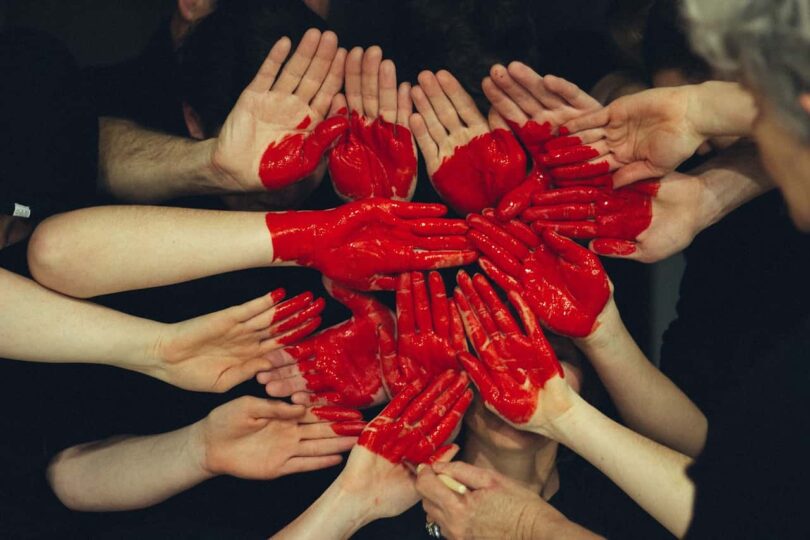
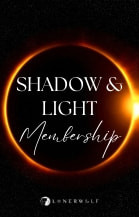



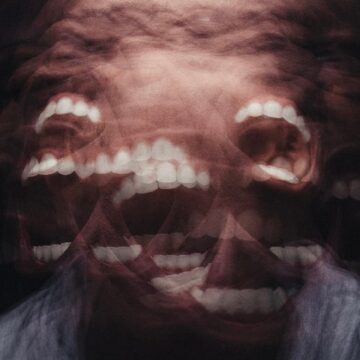

Reading this has literally switched a light on inside me thank you for that. It will always stay with me “all wrongdoings is a product of pain” I truly get that.
Alamein, I’m so inspired to hear that . <3 It's a beautiful mantra.
Thank you so much for your words. I can relate to much of what you say. I too was raised in a “Christian” home with a very toxic, narcissistic mom. I was supposed to be the “good girl” and forgive the abuse because there obviously was something wrong with me. I forgave over and over and at thr time I thought it was my fault. But now looking back, it absolutely was not as I was going through the normal cycle of abuse.
Because forgiveness in those years meant “don’t call out the abuse”, I am still sorting through the word forgiveness. I have given myself permission to say, “I don’t forgive so and so,” and instead turn that forgivenes on myself. I forgive myself for staying in that environment for so long. I forgive myself for forgiving and not facing the truth.
I am here now ans I am so grateful. Thank you for confirmation.
This is the best article I have ever read on this subject … and I do a lot of reading!!! Such real and authentic wisdom!
Luna, I can relate to you because I also come from a very similar family situation and background. At the age of 47, I can at last understand what happened to me and give it a name. For me this is only the start of the healing journey. But I agree with you, it is a process and cannot just magically repair all the pain and damage. By acknowledging and validating my own pain and emotions was a good start. All of us arrive on this planet with some degree of pain, but we have a choice to deal with it or to inflict it on others. The ones who do not heal and deal with their pain will stay trapped there. The ones who have chosen to rise above the pain and protect themselves from future pain, are the ones who will exit the cycle of pain. By living a life full of self-love, pure joy and growth, we may just inspire the people in pain to do the same. The choice and responsibility is theirs.
For years I struggled with this concept finally at 47 it’s happening. For so many years people and including my children said “quit living in the past forgive and move on!” OMG (insert bitch fit) IM TRYING I don’t know how! The hidden secret was I needed to examine my part, and forgive myself for grievances knowing or unknowning, before I could forgive others. It’s hard especially if you were a victim as a child.
Their deeds should be the cause staining for my well-being as a person to sink down to nowhere. This person is just a sign to cause the damage of any kind. In my childhood days, I learn to stand-up after stumbling upon. I let him her know about this. Maybe they feel better that they are right and knowing their contribution to education a person. It is a case-to-case bases actually to give a clear and safe distance. We have different thresholds. Perception. Thinking and Feeling of understanding.
Thanks for the writing. I’m going through a breakup right now and it’s brutal. We broke up a few times over the last two years…this time it’s for good. I said some hurtful things as did she. She’s done talking to me, saying it is irreparable. I know she’s been hurt very badly before and now it’s compounded everything. So how do I move on? Forgive myself for what I said? Forgive her for dreaming up our beautiful future together and then sabotaging it? ugh. I thought she was the one.
Avi, although it’s extremely hard to do, it is possible to teach yourself to look beyond a person’s nasty and self-destructive behavior once you see that their actions are a product of unresolved PAIN. Trying to uncover the type of pain your girlfriend has felt and is continuing to feel (e.g. self-hatred, shame, fear, grief, fear of abandonment etc.) will help you to empathize with her, despite what she has or has not done.
As for forgiving yourself, it all involves being open to facing up to what you did or did not do with absolute honesty. Taking ownership for yourself and what you’ve done/not done is the first step to healing. Once you do, you can then explore your own hurt. What has made you act out? Find the root of that behavior and learn to see yourself as a flawed, but very worthy being. We all make terrible mistakes, and you are not exempt.
If anything this will serve as a lesson for you, so treat it likewise.
Thank you, Luna, this is beautiful, really beautiful. I’ve had some beautiful moments too when i was (and still am) learning to forgive myself and people around me. It was extremely painful and sometimes I still feel a little of that pain when i see things that quite similar to my experience. By slowly embracing and practicing forgiveness, it feels majestic, it feels like i’m evolving myself. The beautiful process allows me to experience another sides of life. Sometimes it’s harsh, sometimes it just breezes along in the way, but to me, that’s exactly the true beauty of forgiveness.
It does make you feel majestic, doesn’t it? That is because forgiveness is a reflection of our higher selves, and when we truly forgive, we catch a glimpse of what it is like to be connected to something bigger than our limited identities. Thank you Ika <3
Thank you Luna for a nice and thought provoking article on a virtue “Forgiveness” which is usually misinterpreted in the society. I would like if you can extend your thoughts on the connection between point 3 and point 4 in the article. I totally agree with the points individually, but I feel that there is a connecting link between the two which I don’t understand. Generally, our attitude is like we want to understand the whole scenario from other’s perspective also to forgive them. But, as you wrote that ‘there is no need to’. So, unless we understand what may have happened, how can we empathetically understand others. By the way, thank you for creating this website and for great articles. It has been of immense help in recent days to me in rediscovering myself when I was starting to feel lost in the quagmire of this world. I just seem to intuitively connect to many of your and Sol’s article.
That is a good observation Archita, thank you for making it. If it is possible for us to understand a person’s motives by reflecting on the past, then by all means we should. It’s wouldn’t benefit us to simply ignore, repress or hide from what happened. But if we still struggle to understand the behavior, no matter how hard we try, there is simply no point in continuing to torture ourselves by ruminating on what happened. Sometimes the actions of others are senseless, and at the very least we can understand that pain causes people to behave in very illogical, self-destructive ways. I hope this bridges the connection that wasn’t present in the article.
Thank you for sharing your thoughts and for commenting here!
I think the hardest part of forgiveness is forgiving ourselves. Everything that i have done to myself is incredibly awful, bitter and worse. Somehow, i can’t forgive myself for that. Giving me this guilty, pathetic, miserable feeling and everytime i try to forgive myself, it’s just not enough.
i don’t know. i feel there is something deep inside me that will never be forgiven by myself. And it’s become a grudge over time :(
Forgiving yourself is often linked to forgiving other people, but sometimes it’s a completely different kettle of fish. I used to hold onto a lot of bitterness against myself as well … sometimes even manifested as pure disgust for everything I did. Over the years I learned that no matter what I did, or how pathetic I felt, I was still worthy of being taken cared of, nurtured and respected by myself. Often what stops us from forgiving ourselves are our ideals and ridiculous expectations of who and what we’re “supposed” to be. That deep part within you which you feel will never be forgiven is your core wound. Perhaps this might inspire you (written by Sol on the topic): https://lonerwolf.com/core-wound/
Thanks for sharing your vulnerability here Iqbal. <3